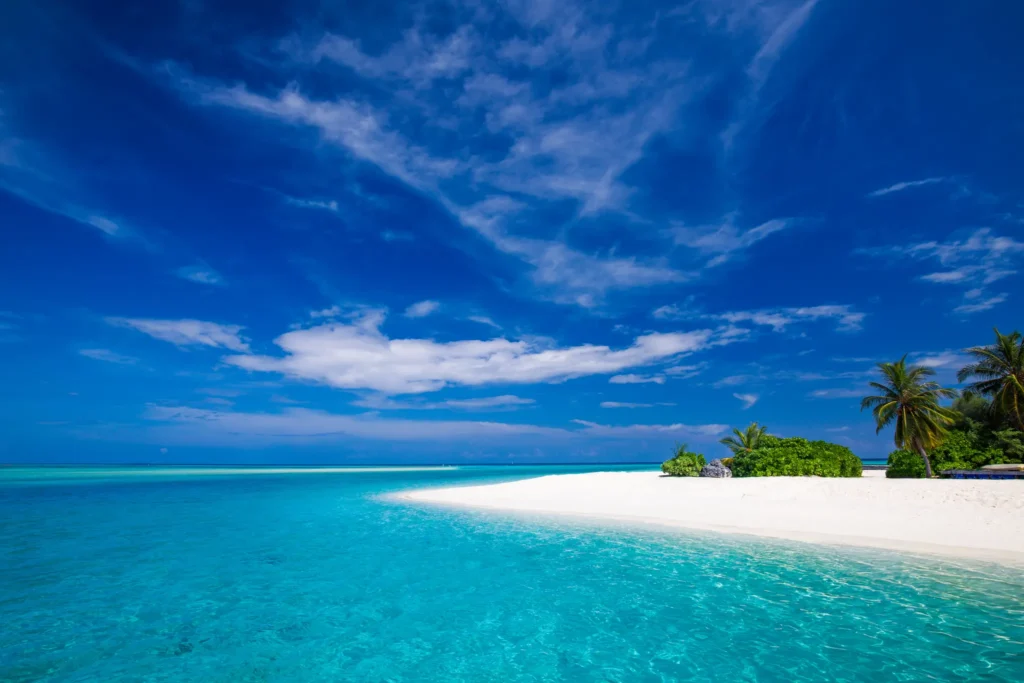The Maldives has banned people with Israeli passports from entering the country due to Israel’s ongoing military actions in Gaza. This decision follows increasing public anger and political pressure on President Mohamed Muizzu from opposition parties and his allies. The ban is intended as a protest against the violence in Gaza and to show solidarity with the Palestinian people.
Actions and Statements by President Muizzu
President Muizzu condemned an Israeli airstrike in Rafah that killed 45 people in a tent camp designated as a “safe zone” for civilians. He emphasized that Israel must follow international law and called for an immediate ceasefire and free humanitarian access. The Maldivian government has also launched a national fundraising campaign called “Maldivians in Solidarity with Palestine” and plans to hold a nationwide rally to support Palestinians.
Implementation and Legal Changes
The Maldivian Cabinet has recommended changing laws to enforce the ban on Israeli passport holders. A subcommittee has been created to oversee these measures. While the ban’s full implementation awaits legal changes, it significantly shifts the Maldives’ stance toward Israel.
Historical Relations Between Maldives and Israel
The relationship between the Maldives and Israel has had ups and downs. The Maldives lifted a previous ban on Israeli tourists in the early 1990s and attempted to normalize relations in 2010. However, these efforts faced setbacks, especially after the ousting of former President Mohamed Nasheed in 2012. Despite intermittent diplomatic dialogues, the normalization process has not succeeded.
Impact on Tourism of Maldives
Tourism is crucial for the Maldivian economy, with over one million tourists visiting annually. In the first four months of 2024, 528 Israeli nationals visited the Maldives, a significant drop from 4,644 during the same period the previous year. The total number of Israeli tourists in 2023 was 10,966, compared to 15,748 in 2022. The ban could further reduce these numbers, especially given the recent advisory from the Israeli Foreign Ministry.

Israeli Response to Maldives Ban
In response to the Maldives’ ban, the Israeli Foreign Ministry recommended that its citizens avoid traveling to the Maldives and suggested that those already in the country consider leaving due to potential difficulties in assisting if needed. Additionally, the Israeli Embassy in India has promoted Indian beach destinations such as Goa, Kerala, Andaman and Nicobar Islands, and Lakshadweep as alternatives for Israeli tourists.
Broader Regional Context
The Maldives is not the only country restricting Israeli passport holder’s entry. Other nations with similar restrictions include Algeria, Bangladesh, Brunei, Iran, Iraq, Kuwait, Lebanon, Libya, Pakistan, Saudi Arabia, Syria, and Yemen. Israeli law also designates Lebanon, Syria, Iraq, Yemen, and Iran as enemy nations, requiring Israeli citizens to obtain special permits to visit these countries.
Gaza Conflict Background
The current conflict in Gaza began on October 7, when Hamas launched an attack on Israel, resulting in over 800 deaths and the capture of 240 hostages. Israel’s subsequent military response has led to significant casualties in Gaza, with more than 36,000 people, including many women and children, reportedly killed according to the Hamas-run health ministry in Gaza.
Humanitarian Efforts
Alongside the travel ban, the Maldivian Cabinet decided to appoint a special presidential envoy to identify areas where the Maldives can support Palestine. This includes organizing fundraising events to assist Palestinians through the U.N. Relief and Works Agency for Palestine Refugees in the Near East.
Domestic and International Reactions
The ban on Israeli passport holders is widely seen as a response to both domestic political pressures and international human rights concerns. The Maldivian government’s stance reflects broader sentiments in the Muslim-majority nation, which has historically shown support for Palestinian causes. The move also underscores the Maldives’ position on international humanitarian issues and its call for adherence to international law.
Economic and Political Implications
The ban may have significant economic implications for the Maldives, particularly in the tourism sector. The country relies heavily on tourism revenue, and the exclusion of Israeli tourists could impact this vital industry. Additionally, the move may affect diplomatic relations and international perceptions of the Maldives, potentially influencing future foreign policy and economic partnerships.
Political Motivations and Domestic Pressure
Political motivations and domestic pressure primarily drive the decision to ban Israeli passport holders from entering the Maldives. President Mohamed Muizzu has faced increasing demands from opposition parties and allies within the government to take a firm stance against Israel’s actions in Gaza. The public outcry over the humanitarian crisis in Gaza has also played a significant role in shaping the government’s response.
Impact on Tourism and Economy
Tourism is a cornerstone of the Maldivian economy, contributing significantly to GDP and employment. The ban on Israeli tourists, while politically motivated, may have adverse economic effects. Israeli tourists, though a small percentage of overall visitors represent a niche market that the Maldives could lose. The decrease in Israeli visitors from 4,644 in the first four months of 2023 to 528 in the same period in 2024 already indicates a downward trend, likely exacerbated by the new ban.

Diplomatic Relations and International Perceptions
The Maldives’ decision to ban Israeli passport holders could affect its diplomatic relations and international standing. While the Maldives does not have formal diplomatic ties with Israel, the move signals a strong stance on international human rights issues. This could enhance its reputation among Muslim-majority countries and those sympathetic to the Palestinian cause. However, it may also complicate relations with countries that support Israel or prioritize diplomatic engagement over protest measures.
Humanitarian Efforts and Solidarity with Palestine
The Maldivian government’s commitment to supporting Palestinians extends beyond the travel ban. The national fundraising campaign and the planned nationwide rally reflect a broader strategy to mobilize domestic and international support for Palestine. Appointing a special presidential envoy to coordinate aid efforts highlights the Maldives’ proactive approach to addressing humanitarian crises.
Historical Context of Maldives-Israel Relations
The Maldives’ relationship with Israel has been marked by periods of attempted normalization and subsequent setbacks. The early 1990s saw the lifting of a previous travel ban, and efforts to restore relations continued into the 2010s. However, political changes and domestic opposition have consistently hindered these efforts. The current ban represents a significant reversal of any progress made toward normalization.
Broader Regional Context
The Maldives’ decision aligns with a broader regional trend of restricting Israeli passport holders. Many Muslim-majority countries have similar policies, reflecting longstanding political and religious tensions. The travel advisory issued by Israel, which includes a recommendation for dual passport holders to avoid the Maldives, underscores the heightened sensitivity and complexity of travel and diplomacy in the region.
Long-term Economic and Political Effects
The long-term effects of the ban on the Maldivian economy and its political landscape remain to be seen. While the immediate economic impact may be limited due to the relatively small number of Israeli tourists, the broader implications for international tourism and foreign relations could be significant. Politically, the move may bolster President Muizzu’s standing domestically, but it could also attract criticism from international observers who view the ban as a form of discrimination.
Future Prospects and Recommendations
Moving forward, the Maldives may need to balance its political stance with practical considerations for its tourism-dependent economy. Engaging in dialogue with international partners and exploring alternative markets for tourism could mitigate potential economic losses. Additionally, maintaining a focus on humanitarian efforts and advocating for peaceful resolutions to international conflicts may enhance the Maldives’ reputation as a principled and proactive member of the global community.
The Maldives’ decision to ban Israeli passport holders is a complex and multifaceted issue, reflecting a blend of political, humanitarian, and economic considerations. As the situation evolves, the Maldivian government will need to navigate the challenges and opportunities presented by this decision, balancing domestic and international interests while maintaining its commitment to supporting Palestinians and upholding international law. The long-term impact of this ban will depend on various factors, including the progression of the Gaza conflict, international diplomatic responses, and the Maldives’ ability to adapt its tourism strategy in a rapidly changing global landscape.
